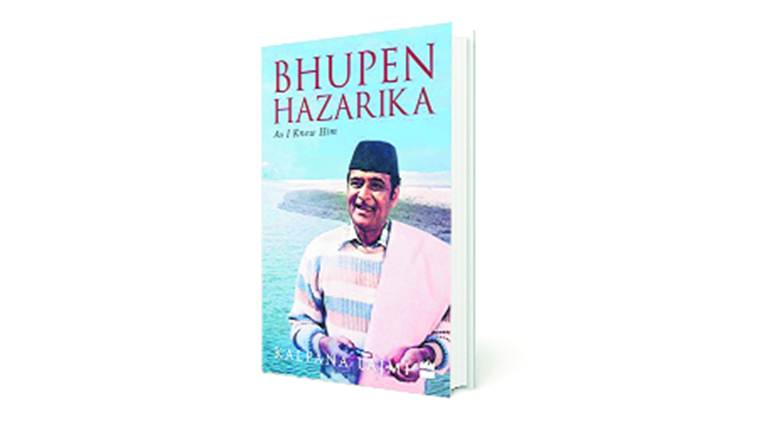Written by Rini Barman |Updated: January 26, 2019 11:13:06 am
Bhupen Hazarika: Everything I Never Told You
A personal account of a difficult relationship and how it came to affect the lives and careers of two creative personalities.

Bhupen Hazarika: As I Knew Him
Kalpana Lajmi
Harper Collins
256 pages
Rs. 499
Kalpana Lajmi
Harper Collins
256 pages
Rs. 499
Separating art from the artist has been a subject of debate across the world. Once aware of that tussle, reading a memoir almost always leaves one with a difficult array of emotions. It is in that context that I read feminist filmmaker Kalpana Lajmi’s memoir Bhupen Hazarika: As I Knew Him. Both of them need few introductions. In September last year, when the former filmmaker’s last rites were being carried out in Mumbai, on social media, the gossip over the artist’s relationship with Bhupen Hazarika continued. Much of my dismay was at the venom being spilled even after her death. I couldn’t fathom how an artist’s book could be blemished before it was even read in its entirety.
At this stage we can ask ourselves: Would this be the case had it been Hazarika’s memoir? In Assam, there is a huge resource on the life and works of Bhupen Hazarika and it’s interesting that some critics have commented that they wouldn’t allow a woman’s book to ruin his legacy by defamation. Lajmi was always within the rubric of dominant Assamese middle-class controversy for being a rebel as a 17-year-old. Within this power dynamic, where does her narrative stand — that too at a time of racial, sexist and xenophobic unrest? She mentions in a talk that Hazarika was a global icon right from his prime. Yet, there was a constant attempt to chain him down to particular ideologies and regionalisms.
Some stunning illustrations by Lajmi’s artist mother Lalitha Lajmi have been laid out in this book. The prose, however, is neither very stylish nor innovative. It speaks less of Lajmi and more of Hazarika. Some of the incidents, though frankly described, feel like they have been edited out midway. I was confused with the tonality — in chapters like ‘Arundhati, Durga and Naval’ where delicate subjects like pregnancy are discussed, the tone changes from utterly serious to providing the reader a strange comic relief. This makes the memoir inadvertently trapped in the notions it tries to debunk.
Lajmi’s confession about being accepted as the artist’s wife and consort at the end, for example, is both tragic and ironic. What’s more painful is her prior knowledge of social acceptance only after an artist’s demise. She admits it honestly, taking the examples of her uncle Guru Dutt and Hazarika. (in one instance, her grandmother tells Hazarika, “You remind me of my Guru Dutt. He was like you…No one understood him either”).It also seems Lajmi had predicted the course of the story she’d always wanted to tell.
But as is expected of puritanical societies, her voice and suffering went mostly unheard. In her screen storylines such as Ek Pal, she redefined and added nuance to the term ‘romantic’. The award-winning film, in her own words, “portrayed and underlined the crusade of a woman who expressed her sexuality outside of marriage and within marriage simultaneously…” The media in Assam has largely failed to capture that nuance in her cinema and her personal life. Lajmi describes how she’d a moment of bonding with Priyam (Hazarika’s former wife) discussing the fate of rejection both of them faced at the hands of the same man. It was essential to find this detail — it shows that the harsh bitterness between these two women that was reported in the media was highly exaggerated.










.png)











No hay comentarios:
Publicar un comentario